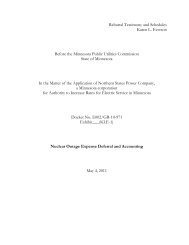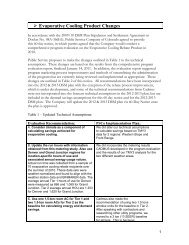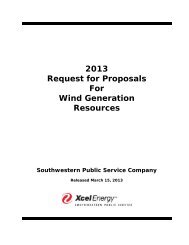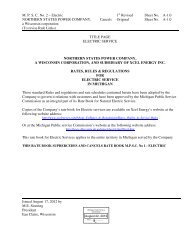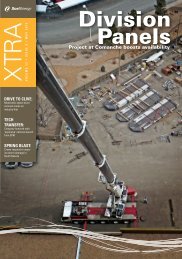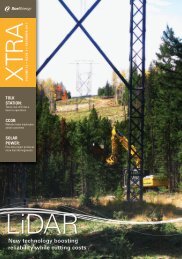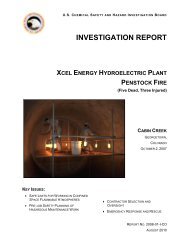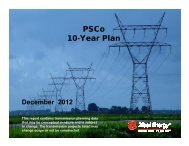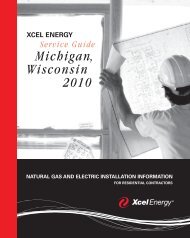Biomass Feasibility Project Final Report - Xcel Energy
Biomass Feasibility Project Final Report - Xcel Energy
Biomass Feasibility Project Final Report - Xcel Energy
You also want an ePaper? Increase the reach of your titles
YUMPU automatically turns print PDFs into web optimized ePapers that Google loves.
Difficulties in Permitting<br />
<strong>Biomass</strong> projects also have run into problems in permitting and approvals, again because of<br />
their novelty. In the case of Fibrominn, the Minnesota Pollution Control Agency required much<br />
more information on emissions rates than the developers expected. This kept the project on<br />
hold for a long time. PCA needed the data because there is no dataset that regulators can<br />
draw on to model emissions from turkey litter. <strong>Project</strong> developers should anticipate that the<br />
permitting process for novel technologies may take longer than permitting for well-characterized<br />
technologies.<br />
Response to Permitting Difficulties<br />
These difficulties will lessen as regulators gain more experience with biomass projects and data<br />
available from biomass projects increases. As biomass power moves from an experimental<br />
technology to one with standardized designs, databases generalized from them will become<br />
available to regulators. The MPCA is acting to build its ability to deal with the permitting of<br />
biomass facilities.<br />
Defining <strong>Biomass</strong> Power Plants as Waste Combustors<br />
Waste combustors present a particular issue in permitting. Because the definition of waste in<br />
state rules may apply to certain biomass feedstocks, biomass power plants could be subject to<br />
standards more stringent than those that apply to traditional power plants.<br />
Two ways to avoid waste combustor requirements<br />
To date, biomass developers have addressed that problem by applying for a variance from the<br />
Minnesota Waste Combustor Rule. A second way to avoid Waste Combustor standards is to<br />
apply for a case-specific Beneficial Use Determination. The granting of a variance or a<br />
Beneficial Use Determination serves to clarify only the applicability of the rules governing waste<br />
combustors, not the need to satisfy other air emissions permitting requirements.<br />
The MPCA has proposed language that would specifically exempt facilities combusting biomass<br />
feedstocks from the state’s Waste Combustor rules. The proposed rule change would<br />
specifically apply to facilities burning forestry residues, wood mill residues, agricultural residues,<br />
dedicated energy crops, finished agricultural products, urban wood wastes, and poultry litter.<br />
High Transaction Costs<br />
The relatively small scale of bio-power facilities makes transaction costs disproportionately high.<br />
Regardless of scale, power plants require engineering studies for design and constructing and<br />
contractual arrangements for connecting to the grid and agreeing upon satisfactory rate<br />
agreements. Rates depend partly on the avoided generation, transmission, distribution, and<br />
emissions costs of the utility. Since those costs are not uniform throughout the state, establishing<br />
a reasonable estimate may entail substantial study.<br />
Not only are the costs of such studies high relative to the output of small power generators, the<br />
question of who pays their cost is an issue, at least for biomass power plants larger than 10 MW.<br />
That is the upper size limit to qualify for PUC’s generic interconnection and operating tariffs for<br />
distributed power generation in Minnesota (PUC, 2004). For plants under 10 MW, the generic<br />
tariffs dictate who pays for studies, how much those studies cost, and how rates and credits will<br />
Page 144<br />
Identifying Effective <strong>Biomass</strong> Strategies:<br />
Quantifying Minnesota’s Resources and Evaluating Future Opportunities



